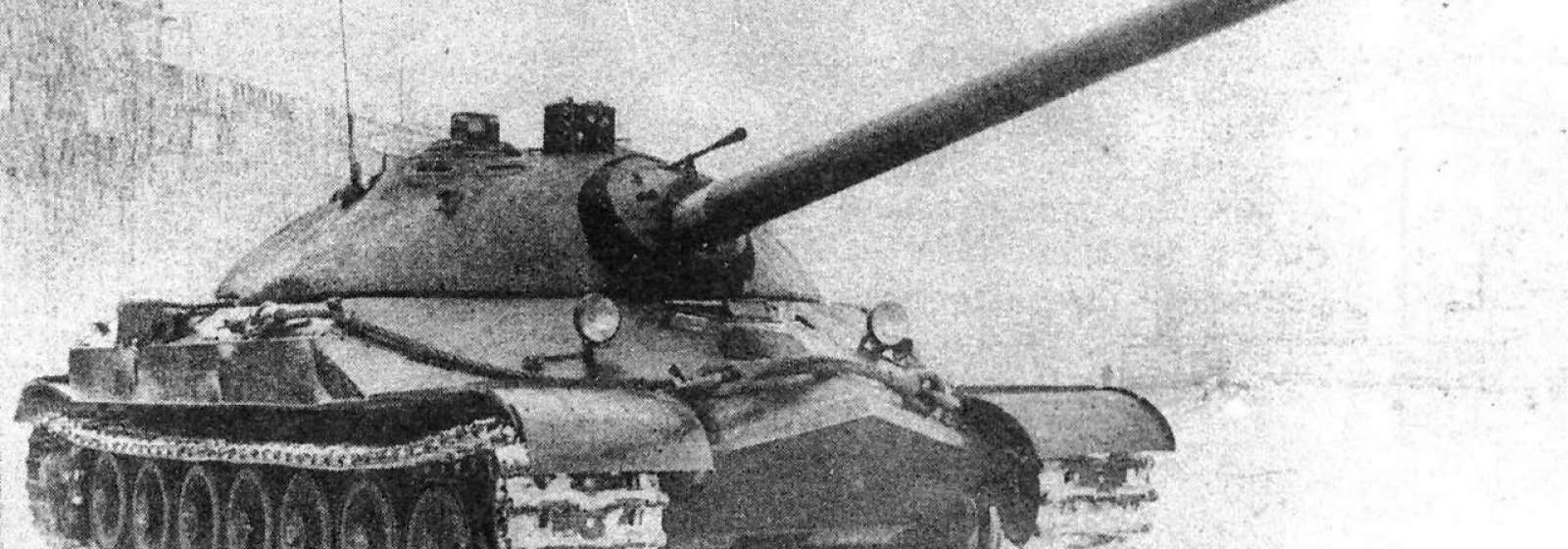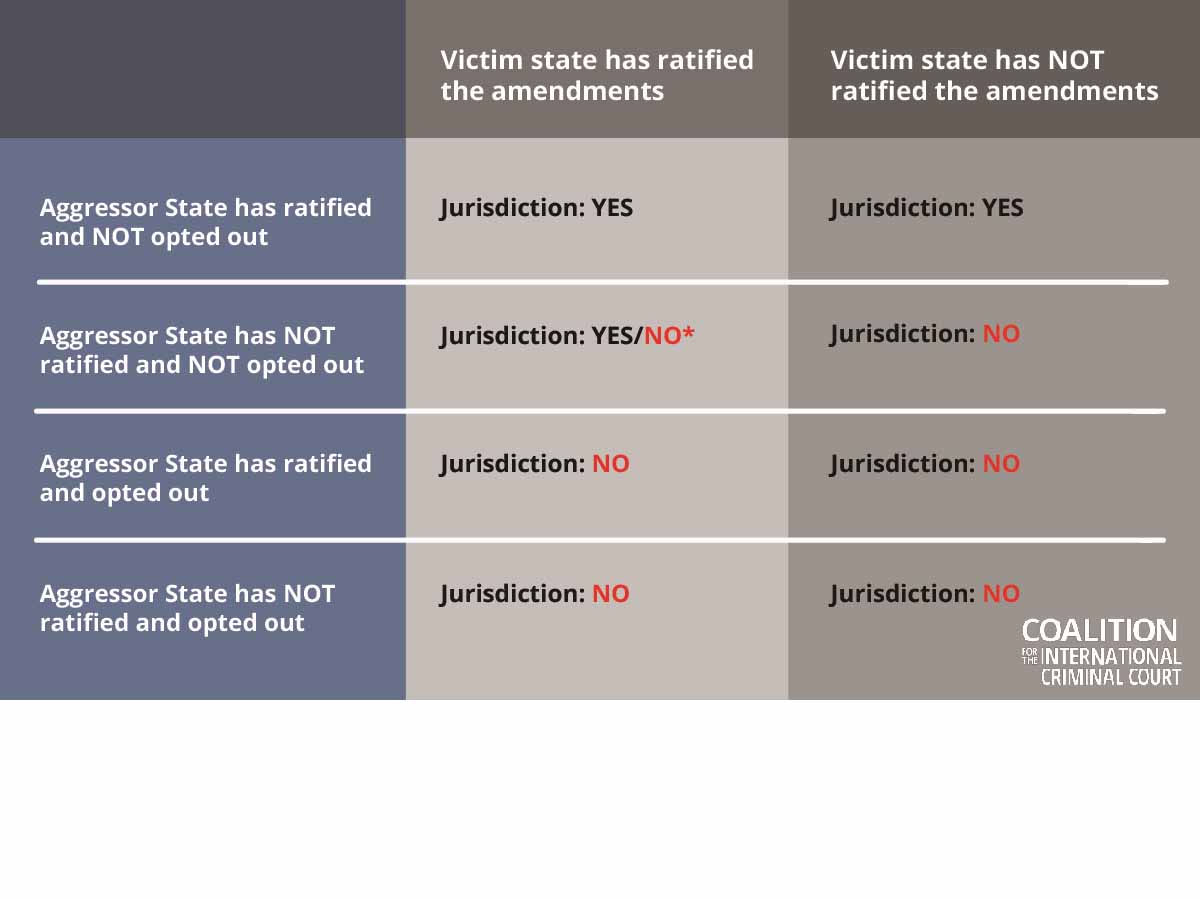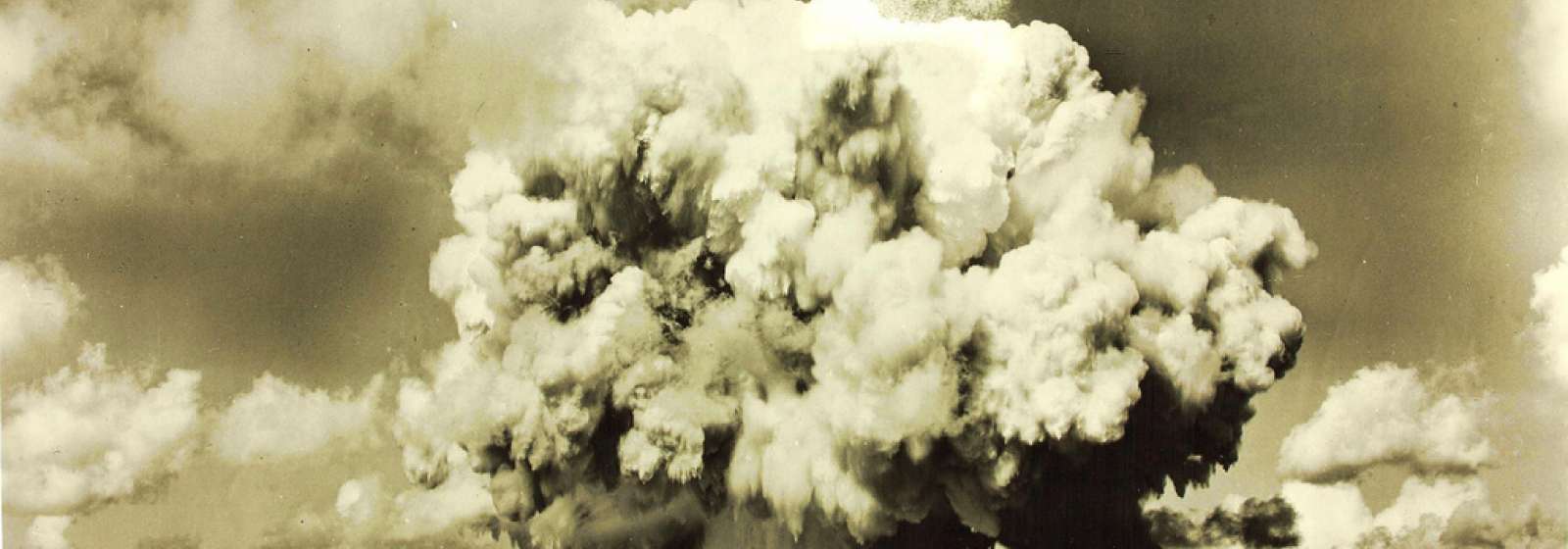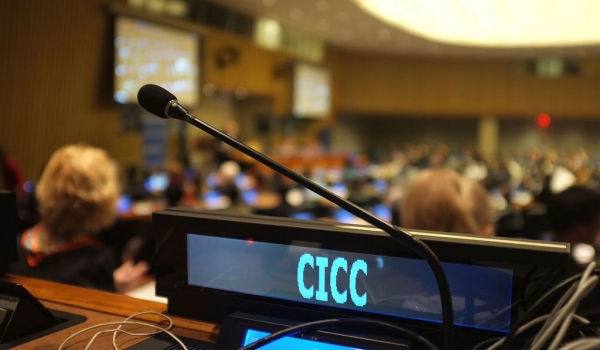Historic activation of the Crime of Aggression
In the early hours of 15 December 2017 at UN HQ in New York, states parties to the Rome Statute agreed to activate the International Criminal Court's jurisdiction over the Crime of Aggression - its fourth 'core' crime.
For the first time since the post-WWII trials in Nuremburg and Tokyo, an international court will be able to hold leaders individually criminally responsible for waging aggressive war.
“The Coalition congratulates all those who have striven for this fourth ICC crime to be activated and looks forward to a strengthened Rome Statute system and global order based on the rule of law.” William R. Pace, convenor of the Coalition for the ICC.
"The activation of the ICC's jurisdiction over the crime of aggression was a gift to all humankind. The Court stands for conscience and compassion, and against hatred and violence." Jutta F. Bertram-Nothnagel, permanent representative to the UN and ICC-ASP of the Union Internationale des Avocats.
Read on for all you need to know about the Crime of aggression.

Three facts on the crime of aggression

It focuses on the most responsible: leaders.

It applies to individuals, not states.

It may be the fourth core crime tried at the ICC.
Crime of Aggression continued
The adoption of the resolution on the crime of aggression came after 10 days of intense diplomatic negotiation that stretched into the early hours of 15 December 2017. With ICC member states having decided upon the definition of the crime at a review conference in Kampala in 2010, ASP 16 was tasked with activation.
However, a split emerged among states on whether the jurisdiction would apply to all ICC member states once the threshold of 30 ratifications had been met, or only to those that had accepted the Court’s jurisdiction over the crime.
The resolution that was finally adopted entered into force on 17 July 2018—the date of the 20th anniversary of the ICC’s founding treaty—for ICC member states which have ratified the Rome Statute and the amendments on the crime of aggression. It also stipulates that the ICC will not have jurisdiction over ICC member states, or their nationals, that have not ratified these amendments in the case of a state referral or proprio motu (initiated by the ICC prosecutor) investigation. However, ICC judges maintain their independence in ruling on jurisdictional matters and referrals from the UN Security Council have no jurisdictional limitations.
Newly elected president of PGA, Ms. Margareta Cederfelt, MP (Sweden)
“Such mass atrocities include wars of aggression that have characterized some of the most tragic events in recent history, which more often than not led to the perpetration of war crimes, crimes against humanity, and even genocides. Today's decision by the ICC Assembly of States Parties to activate the Court's jurisdiction on the crime of aggression reinforces the International Community's commitment to end impunity for the most serious crimes under International Law.”
Aggression was one of the four crimes listed in the Rome Statute when the treaty was adopted in 1998. However, the completion of the definition and provisions of jurisdiction were postponed for further negotiation. In 2010, ICC member states adopted a definition and conditions of activation and jurisdiction for the crime of aggression, the latter which were updated by the ASP in 2017.

The crime of aggression defined
The crime of aggression means "the planning, preparation, initiation or execution, by a person in a position effectively to exercise control over or to direct the political or military action of a State, of an act of aggression which, by its character, gravity and scale, constitutes a manifest violation of the Charter of the United Nations."
The act of aggression means "the use of armed force by a State against the sovereignty, territorial integrity or political independence of another State, or in any other manner inconsistent with the Charter of the United Nations."
These acts can include, among others, invasion, military occupation, and annexation by the use of force, blockade by the ports or coasts.
Rome Statute of the International Criminal Court articles 8 bis 1 and 2.
"The illegal use of armed force is a crime against humanity"
Former Nuremburg prosecutor Ben Ferencz
Spread the word
State ratifications of the Crime of Aggression
As of 25 September 2019, 39 states have ratified the amendments on the Crime of Aggression to the Rome Statute of the International Criminal Court.
Three ways the ICC can exercise jurisdiction
The Crime of Aggression has a unique jurisdictional regime, which cannot be triggered in the same manner as with other crimes of the Rome Statute (genocide, crimes against humanity and war crimes). The Court may exercise jurisdiction over the crime either by:
1. An ICC member state referring a situation to the Court.
2. The prosecutor initiating an investigation proprio motu.
3. UN Security Council referring the situation to the Court
Except in the case of UN Security Council referrals, non-ICC member states are excluded from the Court’s jurisdiction over the crime of aggression, regardless of victim or aggressor status.
How is ICC jurisdiction applied?
The amendments on the crime of aggression enter into force for a state one year after its ratification or acceptance by that state.
Even if ICC member states activate ICC jurisdiction over the crime of aggression, the option to “opt-out” of the Court’s exercise of that jurisdiction in non-UN Security Council referral situations does exist.
The reported view held by the plurality of ICC member states is that once the two conditions (ratification by at least 30 ICC member states and the decision by the ASP) are met, the Court’s exercise of the jurisdiction over the crime of aggression applies to all ICC member states (unless an opt out declaration has been submitted), regardless of individual ratification status of the amendments.
An alternate view has also been advanced stating that the Court’s exercise of jurisdiction over the crime of aggression only applies to the ICC member states who have ratified the amendments.
Table of jurisdictional regime of the Crime of Aggression applicable to Rome Statute states parties

* One area of divergent interpretation surrounding these amendments to the Rome Statute relates to the exercise of jurisdiction under Article 15 bis where an aggressor state (from which nationals have committed an alleged crime of aggression) has not ratified the Kampala amendments and has not opted out of the Court’s exercise of jurisdiction.

What do they say?
"With this completion, implementation and universalization must proceed. Our global international justice network believes that full implementation of the Rome Statute system – including complementarity and full cooperation – will be a major element of the sacred goal of the Rome Statute and the UN Charter – to prevent these worst crimes in international law. And when prevention cannot be achieved, the violations of peace are addressed by justice and the rule of law."
William R. Pace, Former Convenor of the Coalition for the ICC.
"Following the unanimous adoption in Kampala, activating the Crime of Aggression is the next logical and important step to expand international justice and the creation of a more peaceful, secure and accountable global environment. It is in our collective interest that such acts should be criminalised and encompassed within the jurisdiction of the ICC. Just as importantly, this step is in line with the growing understanding of our common humanity and the expressions of compassion which are increasingly emerging within and between the citizenry of every states party."
Brigid Inder, OBE, Former Executive Director, Women’s Initiatives for Gender Justice
"With thousands of nuclear weapons in play, it is too late for wars! The resolution of international political conflict by force is no longer a rational option - if it ever was. The crime of aggression has never been more criminal."
Jutta F. Bertram-Nothnagel led the Coalition for the International Criminal Court Team on the Crime of Aggression (2001-2010). Read her opinion piece, A plea to reinforce peace.
"Only leaders are legally capable of committing the crime of aggression."
Ambassador Christian Wenewesar
Outlawing war
The Covenant of the League of Nations of 1919 (article 10) marked the first real commitment against war under international law, with states committing “to respect and preserve as against external aggression the territorial integrity and existing political independence of all Members of the League.” The Kellogg-Briand Pact of 1928 marked a further move against acceptance of war as a legitimate political instrument. After World War II, the UN Charter crystalized the international law prohibition (article 2 (4)) on the use of force by states against the territorial integrity or political independence of any state—except for in two circumstances: individual or collective self-defence by states (art. 51); and the use of force as authorized by the Security Council (art. 42).
Aggression was first recognized as a punishable international crime in the Charter of the International Military Tribunal at Nuremberg (IMT), as well as in the Charter of the Toyko Tribunals. The definition, enshrined in the Nuremberg Principles, was largely endorsed by the UN General Assembly (GA), which in 1974 adopted Resolution 3314 on the Definition of Aggression, focusing like earlier treaties on state rather than individual conduct and namely intended to guide the Security Council in its decisions on whether an act of aggression has occurred. It is the Rome Statute now that fills the gap, providing an avenue to individual accountability for the crime of aggression.
Coalition position on the crime of aggression
The Coalition for the International Criminal Court represents over 2500 organizations that strongly support the Rome Statute system from all over the world with differing mandates and expertise. The Coalition as a whole did not take a position concerning the adoption of specific provisions on the crime of aggression at Kampala. This was because Coalition members developed varying positions concerning the complex discussions on the crime.
Nevertheless, both before and during the Review Conference, the Coalition encouraged states to approach the consideration of proposals concerning the crime of aggression on their merits and in a constructive and cooperative manner. The Coalition Team on the Crime of Aggression was actively involved in the Princeton Process and in the preparatory work undertaken by the Special Working Group on the Crime of Aggression. During the Review Conference, the Coalition was active in providing information and forums for discussion on the topic to its membership and states delegates.
What next?
According to the draft resolution proposed by the Vice-Presidents of the Assembly of States Parties (ASP), states decided to activate the Court's jurisdiction over the crime of aggression as of 17 July 2018. The Court's jurisdiction will be applicable only to those states who have ratified or accepted the amendments on year after ratification. In the case of a referral by a state or an investigation initiated by the Prosecutor (proprio motu), the Court will not be able to exercise jurisdiction over a state or a national of that state which has not ratified or accepted the amendments.
Read the draft resolution here
For more information
Factsheet on the Crime of Aggression within the Rome Statute of the International Criminal Court
Ratification and implementation of the Crime of Aggression
Coalition for the ICC archive webpage on the Crime of Aggression
Kampala Amendments to the Rome Statute, Parliamentarians for Global Action
Assembly of States Parties webpage on the Crime of Aggression

Inspired?


